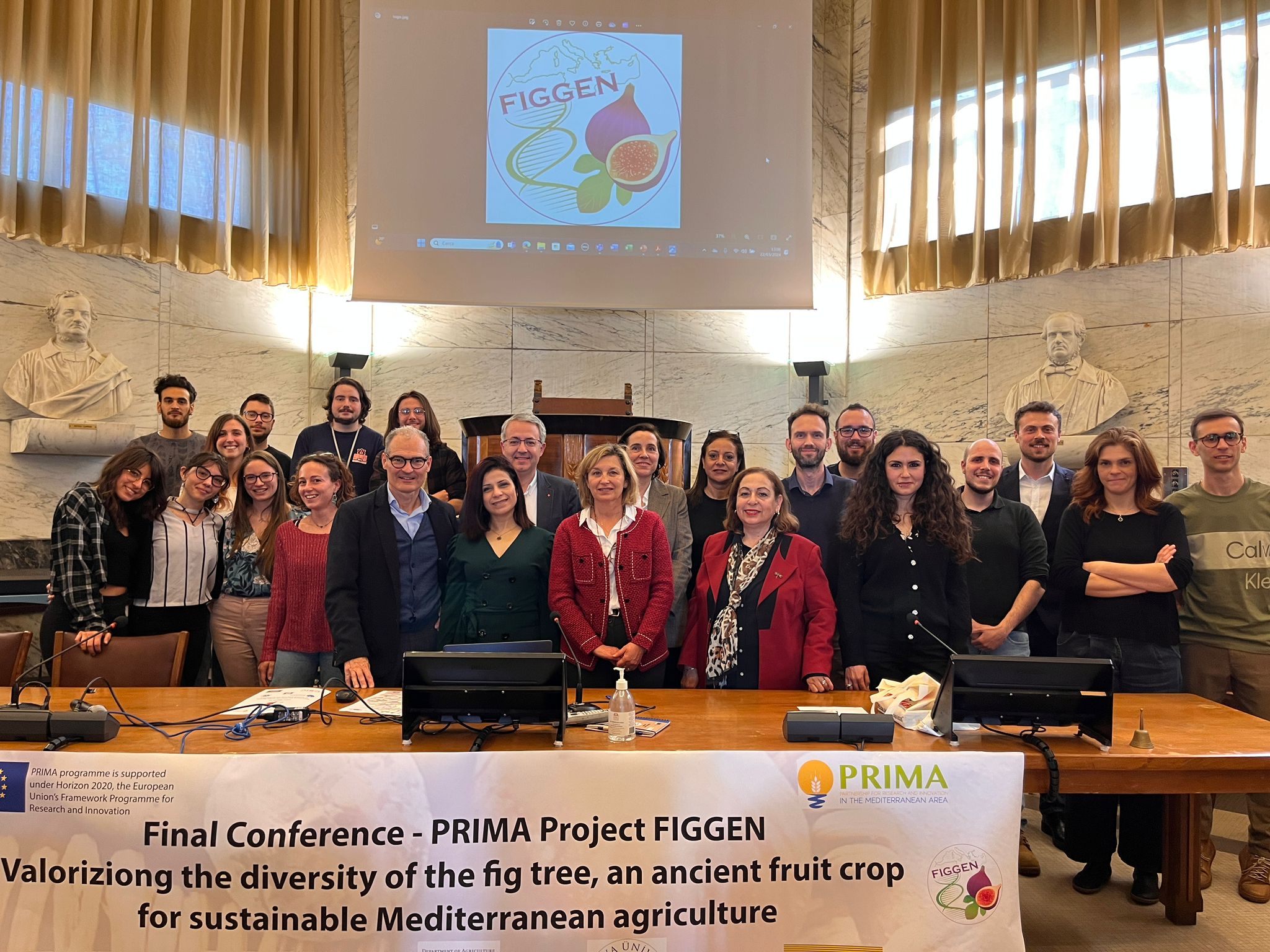- Dettagli
Proceedings of the Final Conference of the PRIMA project “FIGGEN”

- Dettagli
Valorizzare la diversità del fico, una coltura antica per un'agricoltura mediterranea sostenibile - FIGGEN
FIGGEN è un progetto triennale promosso dal programma PRIMA (Partnership for Research and Innovation in the Mediterranean Area) sostenuto dall'Unione Europea. L'ambizione è quella di rendere il fico una delle colture più adatte e redditizie dell'area mediterranea in un contesto di cambiamento climatico.
Tra le colture arboree, il fico mostra un buon adattamento agli ambienti aridi, calcarei e salini, tipici di diverse regioni del bacino del Mediterraneo e del Medio Oriente, dove è coltivato da millenni. La coltivazione del fico ha un grande potenziale di espansione grazie alle preziose caratteristiche nutrizionali e nutraceutiche del frutto ed è particolarmente indicato per essere utilizzato ai fini di un'agricoltura sostenibile basata sulla biodiversità, ad esempio nei sistemi di agricoltura mista come l'agroforstazione. Nonostante la sua coltivazione sia molto antica, il fico presenta un basso livello di miglioramento genetico e la maggior parte delle coltivazioni nell'area mediterranea si basa su cultivar locali, che sono attualmente fortemente minacciate da erosione genetica a causa di parassiti, malattie e stress abiotici, dell'urbanizzazione intensiva, dell'uso di colture monovarietali, della migrazione dalle aree rurali alle aree urbane.
FIGGEN vuole partecipare alla selezione per ottenere colture tolleranti molteplici stress abiotici, migliorando la produttività, l'efficienza e la sostenibilità dei sistemi agricoli.
Il miglioramento genetico dipende anche dalla raccolta, conservazione e condivisione di appropriate risorse genetiche tra breeders e agricoltori. In questo senso il progetto creerà un contesto partecipativo coinvolgendo i principali attori della catena del valore seguendo un approccio transdisciplinare in cui le conoscenze socio-economiche e i recenti progressi scientifici nella valutazione della biodiversità saranno combinati con le conoscenze tradizionali di stakeholder pubblici e privati locali.
FIGGEN mira a valorizzare la biodiversità del fico e a selezionare i genotipi più adatti alle condizioni ambientali derivanti dai cambiamenti climatici, in modo da contribuire al miglioramento genetico di questa specie e ad assicurare una produzione di fichi più sostenibile in futuro.












